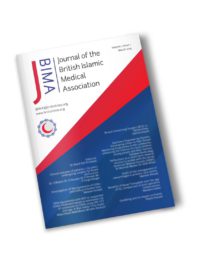
Introduction
This research set out to collect both qualitative and quantitative data regarding the effectiveness of teaching basic life support to the local community in faith-based settings. Data was collected following a BIMA Lifesavers event, in the form of feedback forms to determine the effectiveness of the training given. Overall the data showed the vast majority of participants found the teaching to be of high benefit.
Methods
Data was collected in the form of handwritten feedback forms from 47 participants who attended the full training. Training was targeted at the Muslim community in both the local faith-basedcentre and mosque. Both male, female and child participants were included in the data. Participants could provide a score of one to five for subcategories including content, delivery, visual aids, usefulness and a score for the overall event. Qualitative research was also collected in the form of written feedback allowing for positive comments or areas for improvement. The feedback was then collated and analysed by a medical member of the volunteer team.
Results
Of the 47 responses collected, 91.5% of event participants ranked the event overall as the highest score of five. Scores of five out of five were 91.5 %, 91.5%, 87.2% and 91.5% for subcategories content, delivery, visual aids and usefulness respectively. Qualitative feedback was widely positive, namely the ability to be able to practice on dummies was widely mentioned. The main areas for improvement commented on were widening participation, improving venue space and facilities.
Conclusion
This research has shown the BIMA lifesavers event was well received by the Muslim community of Gloucester with over 90% of attendees ranking the event at the highest possible score. Going forward, further promoting these events to widen participation and gain higher numbers would be worthwhile for a larger community impact. This data suggests good potential for wider health promotion and community-based education among the Muslim community.

